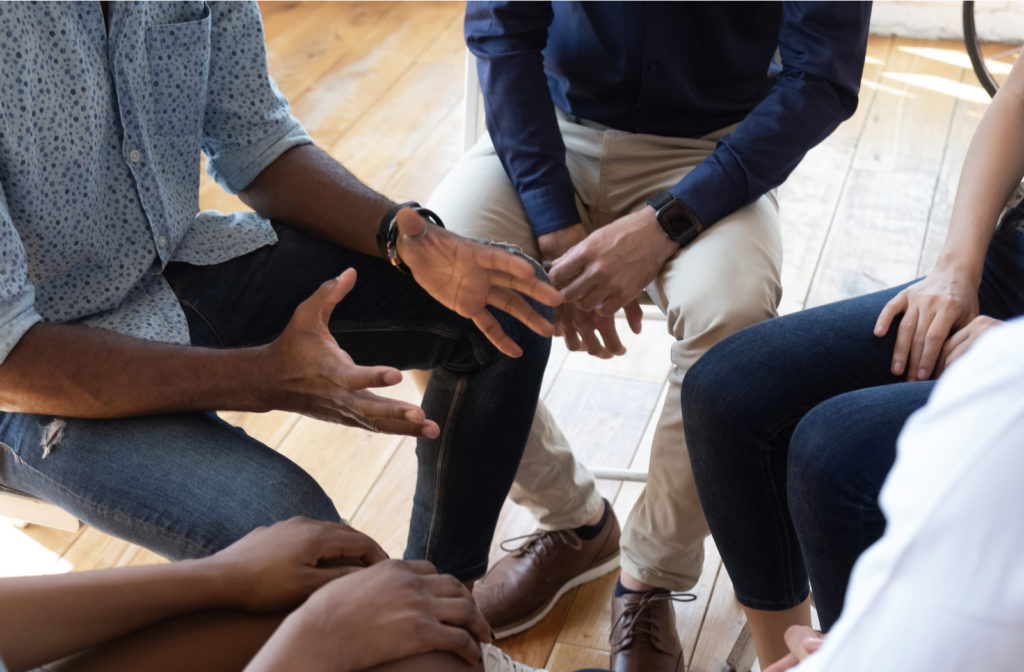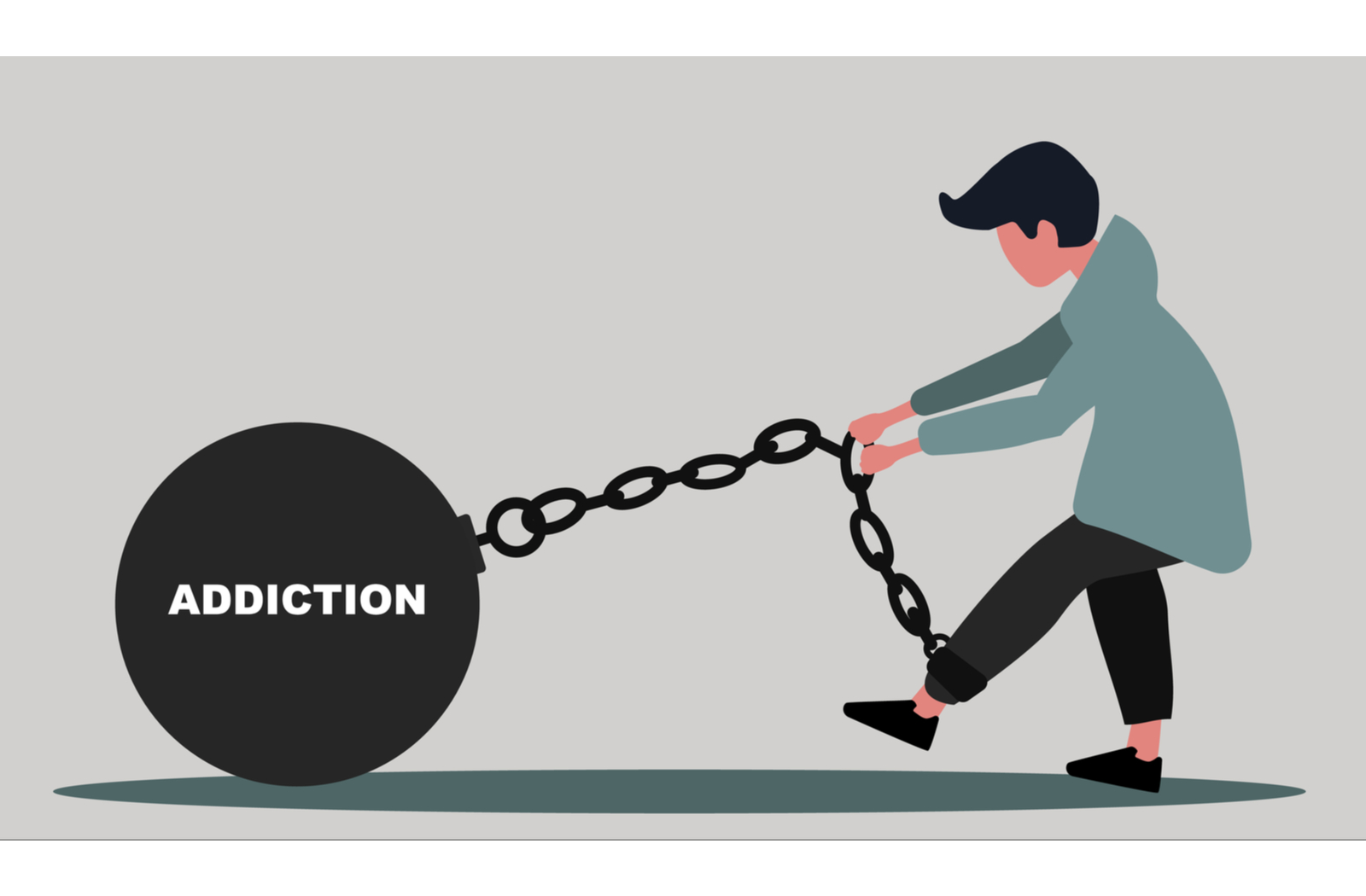Addiction can be difficult to understand. If you or a loved one suffers from substance abuse, you may be haunted by questions such as “what caused this?” or “why does this happen to me?”
If you’ve found yourself in this position before, you should know that it is now widely accepted that addiction is considered a medical illness.
With this information, we hope you can find peace in your reality, and you’re better able to know where to seek the proper help you need, whether it be a recovery program or family support.
Keep reading to learn more about the link between addiction and mental health and where you can find the resources available to you.

Types of Addictions
When we think of addictions, we often think about substance abuse. However, addiction refers to the overuse of both substances and unwanted behaviours. Common types of addictions include:
- Nicotine or tobacco
- Alcohol
- Drugs and medications (both legal and illegal)
- Gambling
- Shopping
- Video games
- Using the internet or social media
The Connection Between Addiction and Mental Illness
A substance use disorder, known as a SUD, is a mental disorder that physically changes the brain. These changes affect a person’s behaviour, leading to a loss of control over their use of substances or behaviours.
Although addiction is not technically considered a mental illness, it is a medical disorder that often co-occurs with mental illnesses.
What are Co-Occurring Disorders?
A co-occurring disorder refers to when one person has two or more mental health disorders or medical illnesses at the same time.
Addiction and Mental Illnesses are often referred to as co-occurring disorders and are quite common. In fact, studies have shown that about half of individuals who experience a SUD during their lives will also experience a co-occurring mental disorder and vice versa.
What Causes Co-Occurring Addiction & Mental Health Disorders?
While SUDs and mental disorders commonly co-occur, there is no evidence to support the idea that one affects the other. Research suggests the following three reasons why SUDs and other mental disorders commonly occur together:
- SUDs and mental disorders have similar risk factors: SUDs and mental disorders have similar risk factors such as genetics, environmental factors, stress or trauma.
- Mental disorders can contribute to SUDs: Studies have shown that people with mental disorders often rely on substances to self-medicate.
- Substance use and SUDs can contribute to the development of other mental disorders: Repeated substance use can cause changes in the brain, some of which can lead to the development of mental disorders.

Recognizing an Addiction Problem
Recognizing an addiction problem in yourself or someone you know can be more challenging than it seems. Some general signs that someone is suffering from an addiction problem are:
- A noticeable lack of control over a substance or behaviour
- Decreased socialization or ignoring certain areas of their life
- Not avoiding dangerous situations despite knowing the consequences
- Physical side effects or withdrawal symptoms
Diagnosis and Treatment
To find the correct treatment, it is important to get properly diagnosed.
Getting Diagnosed
People seeking help for a SUD or any mental disorder need to be evaluated by a licensed health care provider. With co-occurring disorders, a healthcare provider will typically attempt to diagnose each disorder separately. This can be pretty challenging due to overlapping symptoms.
Treatment Options
There are many different treatment options available depending on the patient’s diagnosis, needs and wants. Common treatment options for addiction and mental disorders include:
- Behavioural therapies
- Medications
- Recovery Programs
- Transitional or community housing programs
- Hospitalization or detox management
- Mutual-aid groups helpful (such as Alcoholics Anonymous and Narcotics Anonymous)
Getting the Help You Need
Several programs and services are dedicated to helping people of all ages heal through addiction and mental illness. Contact us today to learn about the programs we offer!
Getting Help in Emergencies
If your loved one is thinking about harming themselves or others, you must seek help right away:
- Call 911 for emergency services or go to the nearest emergency room
- Call the National Suicide Prevention Lifeline at 1-800-273-TALK (8255)
- Text the Crisis Text Line (text HELLO to 741741).
Addiction & Mental Health Resources
If you need additional information or help regarding addiction and mental health, the following resources are available to you:
- Open 24 hours
- Free service
- Service in multiple languages
- Chat service available
- For youth
- Open 24 hours
- Chat service available
- Open 24 hours
- Service in multiple languages
- Open 24 hours
- Service in multiple languages
- Open 24 hours
- Service in multiple languages
If you or anyone you know is struggling with addiction or mental health issues, or you have questions about our programs, please contact us! Our team of staff is always available to answer any questions or concerns you may have.



